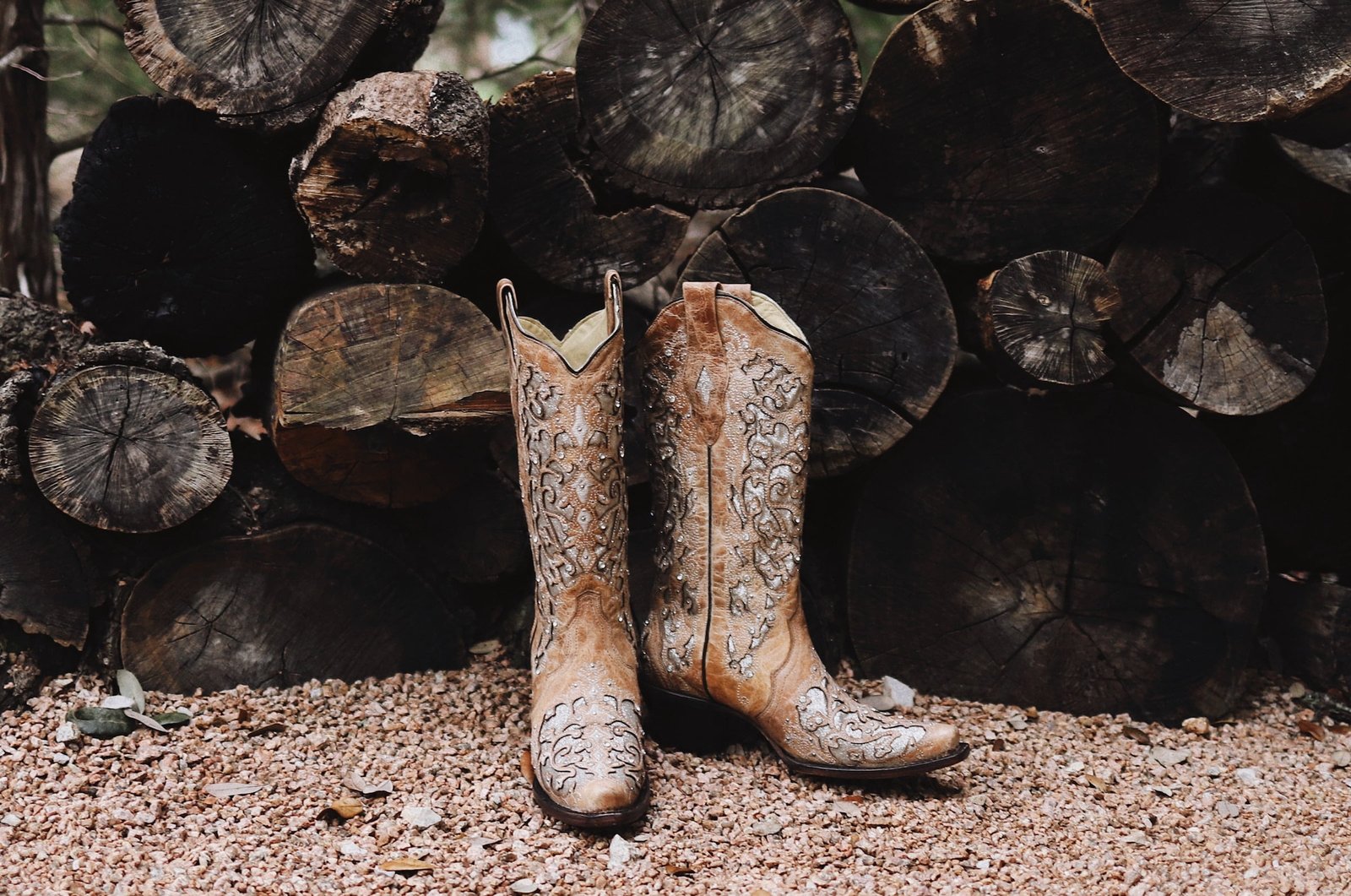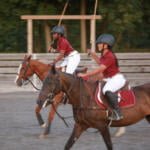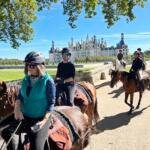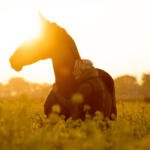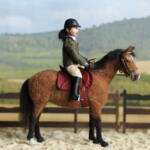I found the cowboy boots in Kann’s shoe department in 1963 when I was a girl just shy of eight years old. While admiring the beautiful brown leather with cut-out diamond shapes all over, I said to my mother and the shoe clerk, “If I had these cowboy boots, I could visit my grandpa. He’s a real live cowboy.” I went home wearing the boots.
My Grandpa Smith was a rancher. His family called him Albert. His friends called him Pinto. Grandpa sent short scrawly letters from Idaho to Oakton, Virginia, where we lived. He wrote about blizzards in the winter and new colts in the spring. He sent me and my three siblings black and white photos of mares with foals, many of them pintos. For birthdays, he sent a silver dollar in a paper envelope.
Buying the boots started a conversation between my parents that led to a train trip to Idaho for my mother and me. That July, Mom and I boarded a train in Washington D.C. We were headed out west!
It was exciting to watch the scenery slide past the windows. There was also an observation car where we could view the sky through domed windows. The voyage was thrilling—for an hour or two. However, a train ride to Idaho took several days. It was a relief when the train stopped, and we could get off.
The cowboy who picked us up at the train station didn’t look like Roy Rogers, who I watched on TV. My grandpa’s weathered face and large belly let me know that it had been a long time since he’d ridden Trigger.
My aunt and four-year-old cousin were also visiting Grandpa. The three grownups sat in the cab of Grandpa’s pickup truck. My cousin and I sat behind the cab on an old seat from a car. I don’t think it was anchored to the truck bed, and it certainly did not have seat belts. We flew through the starry night, the dry, sage-scented coolness rushing at us.
The next morning, I awoke in the Wendell ranch house to sunshine and the crowing of roosters. I learned that many people kept hens for laying eggs but only one rooster. (I was dismayed to find out that most roosters were eaten.) Grandpa kept only roosters—as pets, not for eating.
At almost seventy-four, Grandpa was slow and tired, and when he took off his smudgy cowboy hat to lean on the newspaper-padded kitchen table, his head was pale with just a little bit of hair. He didn’t laugh or tease or entertain, and the lines that went from the corners of his mouth and wrapped around his chin gave him a gruff appearance. He answered questions from me with a growly, “You bet.”
That first morning, I wore my red-footed pajamas out into the dusty front yard of the little yellow ranch house to look around. Grandpa fed the cats by slicing a big X on the top of a cat food can with a huge butcher knife and peeling back the tin triangles. He called, “Here, Buttercup! Here, Clown! Here, Sweetie Pie!” The orange kitten named “Buttercup” was my favorite.
Black Satin was Grandpa’s twenty-eight-year-old horse who was retired to the orchard. He was the perfect sitter for an eight-year-old city-raised granddaughter. Grandpa bridled him, and I slid onto Black Satin’s bare back from the top of a stack of hay bales.
Like a horse on a trail ride, Black Satin had one route, and his top speed was a trot. He carried me down the shaded lane to the mailbox, then back to the haystack, where he would stop to eat. With some stern kicks from my boots, he would break away from munching hay and go again. I thought Black Satin was as wonderful as Flicka, Silver, or any of the TV horses I adored. He was my first riding teacher, and I loved him!
On many days we got into the truck and drove to visit Grandpa’s horses at ranches in Bliss and Dietrich. The day Grandpa put on his red, white, blue, and black parade boots with the eagles on them, we all went to town.
I guess Grandpa had business there, but the only business I was aware of was that he bought me a real cowboy hat—stiff and perfectly shaped, not like the flimsy felt hat I had been wearing. When we got back to the house, Grandpa threaded a leather string through the brim of my hat so I could let it hang on my back.
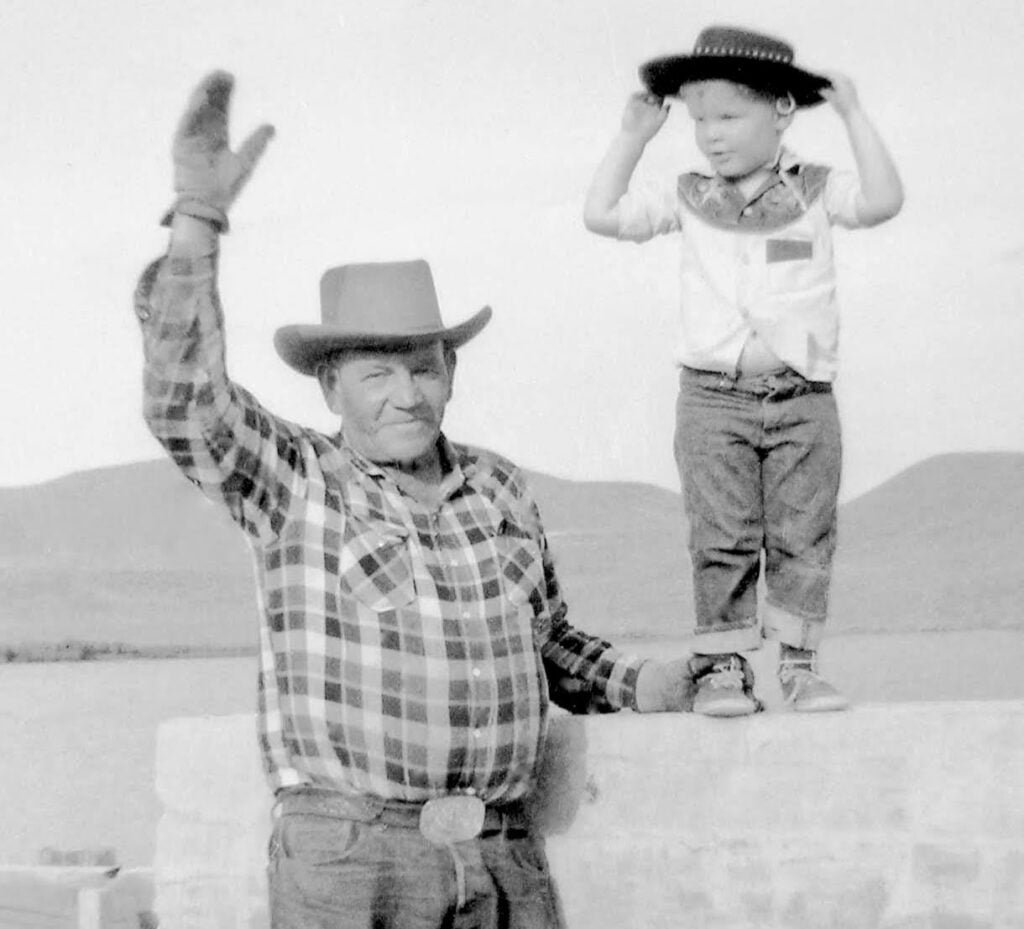
When it came time for Mom and me to leave, we missed the train two nights in a row because Grandpa was not well enough to drive us to the station. I felt impatient to be on our way, but it must have been hard for Grandpa to say goodbye to his oldest daughter and maybe even to me. Finally, he was ready to let us go. It was the last time Mom or I saw him.
On the morning of September 3, 1967, my mother woke me to say, “Grandpa Smith has died.” Though I only knew him from letters, photos, and a two-week visit, he had become special to me.
I cried to think that the only grandparent I remembered—a very real cowboy, a cowboy more real than any actor could ever be—had left his horses and all of us in this world behind. Many years later, I still have the cowboy boots we bought in Kann’s Department store when I was seven. I also have Grandpa’s parade boots.
If you have a story about how horses or horse people have made a positive difference in your life, please consider sharing!
Cover Photo by Amy Humphries on Unsplash

